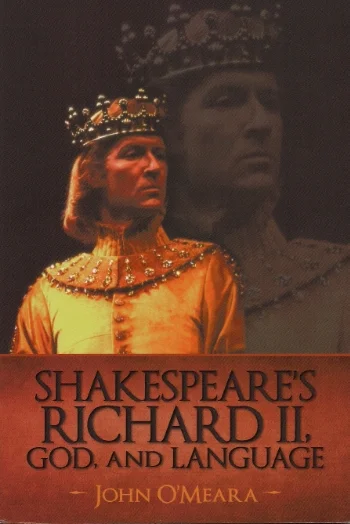A WORD from the Author
[From the Foreword to Shakespeare, the Goddess, and Modernity]
For the most part a critic will be impelled to write about this or that subject, or in this or that area of literature, as his desire happens to dictate at any given time, but with every critic over time a pattern or patterns are created that define some very particular concerns, or it may be obsessions, that come to mark the limits of the contribution that critic has made. The predominant concerns or obsessions of this critic the reader will be able to fathom for him/herself as he/she reaches conclusion. But let me point out the one concern of which I have been the most conscious myself as I was going along, apart from my insistent emphasis on the total extent of Shakespeare’s absorption in human depravity. That concern has to do with what we can think is possible as a form of breakthrough into a visionary otherworld, especially as regards an objectively particular revelation that may be bestowed from such a world or the prospect of an actual otherworldly justification of our human experience, and this in spite of the continued effects of human tragedy ...
Several books came my way over the course of my writing career without which I would not have been able to take the directions I pursued. They were like signposts providentially placed in my path, which let me know what roads I had to go down in order to elaborate on the patterns of experience I seemed destined to write about. Among these I note, going back to my beginnings, especially: The Renaissance Philosophy of Man, edited by Paul Kristeller, John Randall, and Ernst Cassirer; Ernst Cassirer’s The Individual and the Cosmos in Renaissance Philosophy; Howard Baker’s Induction to Tragedy, and John Crowe Ransom’s The World’s Body. The influence of these several works will be felt not only in my book on Hamlet but also in early work that has since been published as monographs: Shakespeare’s Richard II, God, and Language, and Visionary Miraculism in Shakespeare and Contemporaries, these latter two reprinted in Shakespeare, the Goddess and Modernity (see below).
To these influences must also be added Hiram Haydn’s great book, The Counter-Renaissance, especially its remarkable theme of “the denial of limit”, both in the “Romanticist” and the “Naturalist” directions. My encounter with Haydn began a long process of thought, conducted over many years, as to the depth of Shakespeare’s association with each of these directions and especially his association with Martin Luther’s devastating judgment about human nature, as reflected in Shakespeare’s later tragedies. The next breakthrough, which allowed me to pass on from those tragedies into Shakespeare’s late phase, was heralded in by Owen Barfield’s book on Rudolf Steiner, Romanticism Comes of Age, and by Rudolf Steiner’s profound commentary on Johann Valentin Andreae’s The Chymical Wedding. It was Steiner’s work in general that allowed me to understand at last how it was possible for Shakespeare to reach through in his development as far as The Tempest with its unmatched forecast of the maximum hope to come for us, in spite of the seemingly all-arresting depths of Shakespeare’s pessimism in the later tragedies.
Then came my encounter with Ted Hughes’s Shakespeare and the Goddess of Complete Being and Robert Graves’s The White Goddess, books which spearheaded some fresh research into Romantic and modern authors. Many of these I had been reading and had taught, over the years, alongside my Shakespeare studies. The perspective on this literature offered by Graves and by Hughes I now related back to what I had gleaned from Shakespeare’s own experience of the Goddess, in an attempt to achieve yet another level of synthesis of literary themes. This next level of synthesis was to find initial expression in Myth, Depravity, Impasse, one of the three studies that were finally collected in the volume On Nature and the Goddess in Romantic and post-Romantic Literature. A concurrent attempt at a comprehensive synthesis of these themes, or at least the projection of one, is to be found in Shakespeare, the Goddess, and Modernity.
